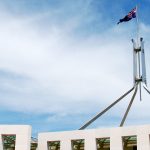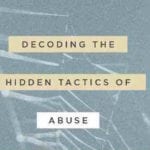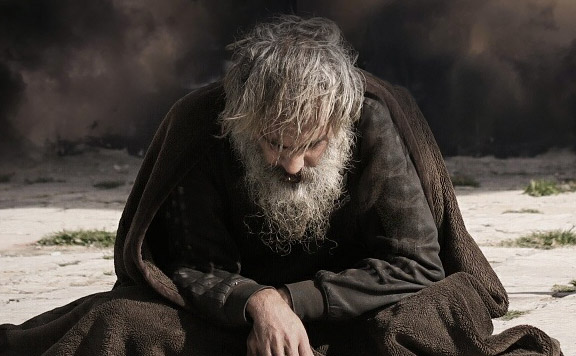I don’t agree with him on many things, but Waleed Aly represents so much of what is good about Australian multiculturalism. Born in Victoria to Muslim parents, he is a classic model of integration. He is western educated and has imbibed – and now propagates – western liberal values. In terms of being a part of modern Australian society, it’s hard to argue that this year’s Gold Logie is anything other than an endorsement of just how Ozzie he is (even if you don’t like the particular brand of being Australian that is being endorsed). He’s a poster boy for successful positive immigration at a time when questions about immigration are back on the public agenda, not least immigration from Islamic cultures such as those that his parents came from.
Ducking and Reaping
Earlier this week Aly gave one of his regular monologues (embedded below) on Australia TV Show The Project. Aly was responding to an appearance by Pauline Hanson (a populist anti-immigration senator) on ABC’s Q&A. Hanson’s party looks like having 3 senators under Australia’s proportional representation system for the upper house. Her success can be seen as part of that wider movement in Western democracies where a larger and larger body of voters are feeling that nobody is listening to their concerns. It’s the same sentiment that led to the Brexit vote and will quite possibly lead to Trump becoming the most powerful man in the world. Monday night’s show was fascinating; Hanson was much better prepared than I’ve ever seen her, her cheer squad was in the house, and she did a good job of demonstrating that many of her political opponents are simply unwilling to properly address the increasingly insistent questions being asked about immigration. None of this is to endorse her position, but I do want to point out that if our self-appointed leaders continue to duck the hard questions being asked about Islam and immigration then they shouldn’t be surprised when politicians like Hanson and Trump gain more and more support for their outlandish answers.
Back to Aly. His monologue on Tuesday night tried to encourage a better response to Hanson and other commentators such as TV host Sonia Kruger who has also called for a moratorium on Muslim immigration.
When we’re presented with an outrageous opinion, we’re actually presented with two options: destruction or construction.
We can react emotionally or carelessly or we can consider what motivated that person – try to understand their fear and try to empathise with their conclusion.
…
Where we’re presented with something that we perceive to be an outrageous opinion we can consider what motivated that person and try to understand their fear. Because the truth is that what motivates them is fear, and fear is the one thing we’re all sharing right now because I’m scared too. I’m afraid for this country.
Good on ya’, Waleed. There’s a whole host of frightened people out there feeling like their concerns (rational or not) are not being addressed and decrying them only makes them shout louder.
But the very best, you might say “golden“, moment is what came at the end:
I’m talking about assuming the best in people; showing others radical generosity in the face of their hostility even when it hurts. This is the much harder choice because it demands much more restraint, patience and so much more strength. I’ve lost count of the number of times I’ve seen outrage go viral. Wouldn’t it be amazing if just once we could send forgiveness viral?
Could not agree more.
But where does this idea of a radical generous forgiveness come from? If there is a virus then who is patient zero? Where is the index case?
Waleed didn’t make the concept up all on his own. He’s proposing an oft-forgotten idea that actually demonstrates just how successfully integrated into Western culture he is because the index case for Aly’s “radical forgiveness” is, of course, Jesus of Nazareth. Do you want to see restraint, patience and radical forgiveness in the face of hostility? Well you need to look at the Cross:
Luke 23:32-34 Two other men, both criminals, were also led out with Jesus to be executed. 33 When they came to the place called the Skull, they crucified him there, along with the criminals—one on his right, the other on his left. 34 Jesus said, “Father, forgive them, for they do not know what they are doing.”
The Apostle Peter (drawing from Isaiah 53) sums up Jesus’ radically forgiving attitude and actions like this:
1Pet. 2:23-24 When they hurled their insults at him, he did not retaliate; when he suffered, he made no threats. Instead, he entrusted himself to him who judges justly. 24 “He himself bore our sins” in his body on the cross, so that we might die to sins and live for righteousness; “by his wounds you have been healed.”
Thanks to Waleed for his calming input into this debate and I hope I’m not the only one that is grateful for how much he and so many other immigrants (like me and my family!) have contributed to Australian society. But centuries before Aly’s parents chose to come to Australia it was the paradigm-shattering message of grace and love embodied in Jesus of Nazareth that has left such a massive impact upon western culture, even if much of our society today has little clear remembrance of it. Waleed’s onto something but actually he doesn’t go far enough, but then neither does our supposedly “Christian” culture. The forgiveness that Jesus offers is not just understanding and patience but a radical beneficial transformation of His enemies at the greatest personal cost.
The ancient and now oft-dormant virus of forgiveness is one that many of us are keen to see go epidemic, but let’s never forget who the index case is. And wouldn’t it be great if Aly and so many others were fully infected?
This article was originally published on David Ould’s blog.
Photo: 2015 Prague Prayer Vigil for Paris Attacks, by Bianca Dagheti, flickr














